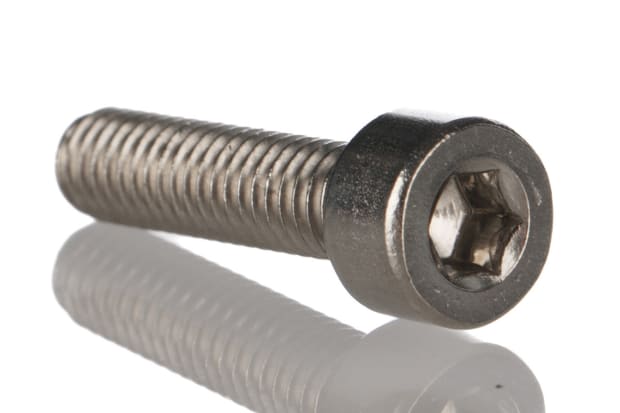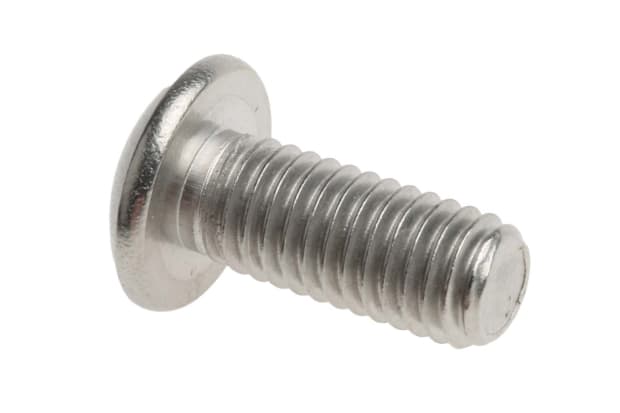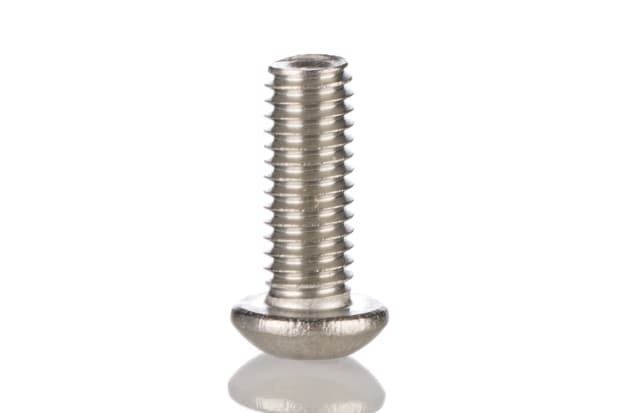- Published Aug 20, 2024
- Last Modified Aug 20, 2024
- 11 min
Comprehensive Guide to Socket Screws and Their Uses

This comprehensive guide explores the various options of socket screws, delving into their types, materials, and designs. We'll help you navigate the options and make informed decisions on which socket screws are ideal for your specific applications, ensuring secure and reliable mounting solutions for your projects.
What is a Socket Screw?
Socket screws are specialized fasteners characterized by their hexagonal internal drive, which allows them to be tightened or loosened using an Allen wrench or hex key. This unique design differentiates socket screws from traditional screw types such as Phillips, slotted, and Pozidriv screws. The hex drive provides a more secure grip, enabling greater torque application without the risk of stripping, making socket screws ideal for high-stress environments.
One notable feature of socket screws is their flat point design, which is commonly used in various applications. However, they also come in different shapes, including socket head cap screws, which have a cylindrical head for enhanced torque and a low profile, making them suitable for tight spaces. Socket screws can be fully threaded or partially threaded, depending on the specific application requirements.
While socket screws share many similarities with standard screws, their design offers several advantages. They combine the performance benefits of hex fasteners like nuts and bolts with the convenience of traditional screws, making them an excellent choice for applications requiring secure fastening in confined areas. Their versatility allows them to be used in a wide range of settings, from machinery assembly to furniture construction.
In summary, socket screws are an essential component in modern fastening solutions, providing strength, ease of use, and adaptability across various applications. Whether you are working on mechanical projects or DIY tasks, understanding the benefits and types of socket screws can significantly enhance your fastening strategy.
Advantages of Socket Screws
Socket screws are fasteners designed with a hexagonal internal drive, allowing them to be tightened and loosened using an Allen wrench or hex key. This design offers several advantages over traditional screw types, such as Phillips or slotted screws, particularly in applications requiring high torque and secure fastening. Here are some key benefits of using socket screws:
- Increased Torque and Clamping Force: Socket screws provide superior torque and clamping force compared to regular screws. This means they can achieve a stronger connection with fewer screws, making them ideal for high-stress applications.
- Cost Efficiency: Because fewer socket screws are needed to achieve the same clamping force, users can save on hardware costs. This reduction in the number of screws also leads to fewer holes needing to be drilled and tapped, saving time and minimizing potential damage to components.
- Space-Saving Design: The compact size of socket screws, particularly their cylindrical heads, allows for installation in tight spaces where traditional fasteners may not fit. This is especially beneficial in machinery and equipment where access is limited.
- Lightweight Construction: The smaller size of socket screws contributes to a lower overall weight of the finished assembly. This is increasingly important in industries focused on lightweight designs, such as automotive and aerospace.
- Versatility Across Applications: Socket screws are widely used in various industries, including automotive, furniture manufacturing, and machinery assembly. Their ability to provide a strong, reliable fastening solution makes them suitable for both heavy-duty and everyday applications.
- Reduced Installation Time: The ease of installation with an Allen wrench means that socket screws can be tightened quickly and efficiently, streamlining the assembly process.
What is a Socket Head Cap Screw?
A socket head cap screw, also known as a socket cap screw or Allen bolt, is a type of fastener with a cylindrical barrel-shaped head containing a hexagonal socket. The head has a smaller diameter than most other machine screw heads, typically just 1.5 times the nominal thread diameter.
Socket head cap screws are well-suited for use in confined spaces as they require no external clearance for a wrench or spanner. They are often recessed within a counterbored hole, leaving the end of the head flush with the surface of the part being fastened, producing a clean appearance with no protruding parts that could catch or be damaged.
These screws are commonly used in industrial production, assembly lines, automotive, furniture manufacturing, machine tooling, and steel fabrication due to their ease of installation and impressive clamping strength. They are available in metric and imperial sizes, with the most common being ISO 4762 (DIN 912) for metric and BS 2470 for imperial.
Socket head cap screws are typically made from alloy steel, grade 12.9, for high strength and durability. They are often threaded along the full length of the shank and are 20% stronger than a Grade 8 hex head screw and 50% stronger than a Grade 5 hex screw.
Socket Screw Sizes
Socket screw sizes are crucial for ensuring the right fit and function in various applications. Typically, the average socket cap screw head is about 1.5 times the diameter of the screw shank and has a height comparable to the width of the shank. However, there are several head designs available, including low head, button head, and flat head variations, each tailored for specific mounting needs, such as countersunk holes.
When purchasing socket screws, it's important to note that the stated length is measured from just under the head to the tip of the screw. This measurement convention is consistent across most screw types, although some, like thumb screws, may include the head height in their length specifications.
Key Points About Socket Screw Sizes:
- Measurement Standards: Socket screws are available in both metric and imperial sizes, with manufacturers often providing sizing charts to assist in selecting the appropriate dimensions.
- Common Sizes: Smaller socket screws, typically ranging from M2 to M6 in diameter and lengths from 3mm to 20mm, are widely used across various tasks. However, larger sizes, such as M8 to M20, and lengths up to 130mm are also available for heavier applications.
- Specialized Applications: Extra-long socket screws are frequently found in electrical plug sockets, with common sizes including 40mm, 50mm, 60mm, 75mm, and 100mm.
- Versatility in Use: The variety of socket screw sizes allows them to be used in diverse industries, including automotive, machinery, and furniture manufacturing, where specific dimensions are critical for performance and safety.
Socket screws are manufactured from a variety of materials, each offering unique properties that make them suitable for specific applications. The most commonly used materials include steel and stainless steel, but there are also alternatives such as brass, aluminium, black nickel, zinc-plated, and chrome. The choice of material largely depends on the intended use and environmental conditions where the socket screw will be employed.
Aluminum Socket Screws
Aluminum socket screws are lightweight and corrosion-resistant, making them ideal for applications where weight is a critical factor, such as in the automotive and aerospace industries. However, they have lower shear strength compared to steel, so they may not be suitable for high-stress applications.
Steel Socket Screws
Steel is a popular choice for socket screws due to its strength and durability. It is often available in various finishes, including black oxide and zinc plating, which enhance corrosion resistance. Steel socket screws are ideal for general applications where high strength is required.
Stainless Steel Socket Screws
Stainless steel offers excellent corrosion resistance, making it suitable for applications in harsh environments, such as marine or chemical settings. Common grades include 304 and 316 stainless steels, with the latter providing superior resistance to saltwater and acidic conditions.
Zinc or Nickel Plated Steel Socket Screws
Zinc plating is commonly used to enhance the corrosion resistance of steel socket screws. Combined zinc-nickel plating offers even greater durability, providing up to four times the corrosion resistance of standard zinc plating. This makes it a suitable option for applications exposed to moisture and corrosive elements.
Brass Socket Screws
Brass is often chosen for its aesthetic appeal and corrosion resistance. It is stronger than copper and is a good choice for decorative applications or where electrical conductivity is required. However, solid brass socket screws are recommended for outdoor use, as brass plating may not provide adequate protection against corrosion.
Various Types of Socket Screws
Socket screws come in various types, each designed for specific applications and offering unique advantages. Understanding these types can help you choose the right fastener for your project, ensuring optimal performance and reliability. Below are some of the most common types of socket screws:
Button Head Socket Screws
Button head socket cap screws, also known as round head or dome head socket screws, feature a smooth, slightly rounded dome at the head. This design makes the head larger and more bulbous compared to standard cap screw varieties. Key characteristics include:
- Larger Hex Key Compatibility: The larger head allows for the use of a bigger hex key or driver, enabling higher torque application and greater clamping forces.
- Tamper-Proof Options: Button head socket screws are available with tamper-proof drives, making them suitable for security-sensitive applications.
- Aesthetic Appeal: The rounded head provides a clean, finished look, making these screws ideal for visible applications.
Countersunk Socket Screws
Countersunk socket screws, also known as flat or flat head socket screws, are designed to sit flush with or just below the surface of the workpiece. They are commonly used in applications where a smooth surface is essential. Key features include:
- Sloping Shoulder Design: Typically featuring an 82-degree angle, the sloping shoulder allows the screw to embed into the surface via a pre-drilled countersunk hole.
- Flush Installation: Ensures that the installed screw does not protrude, providing a seamless finish.
- Variety of Sizes: Available in numerous lengths and widths, these screws are offered in both imperial and metric measurements to suit various requirements.
Beyond button head and countersunk socket screws, several other types are available, each catering to specific needs:
Socket Head Cap Screws
- Known for their cylindrical head and internal hex drive, these screws are ideal for high-torque applications and confined spaces.
Flat Point Socket Screws
- These screws have a flat tip and are commonly used in applications requiring a secure, flush fit.
Shoulder Screws
- Featuring a cylindrical, unthreaded shoulder, these screws are used in applications requiring precise alignment and smooth pivot points.
Choosing the Right Socket Screw
Selecting the appropriate type of socket screw is crucial for ensuring the success and durability of your project. Several key factors must be considered to make an informed decision. Here, we delve deeper into these considerations to help you choose the right socket screw for your specific needs.
Application Requirements
The first step in choosing the right socket screw is to understand the specific requirements of your application. Different types of socket screws are designed to meet various needs:
- Flush Installation: If the screw needs to sit flush with or below the surface, countersunk socket screws are ideal. They provide a smooth, seamless finish, which is essential in applications like furniture assembly or automotive interiors.
- High Clamping Force: For applications requiring high torque and clamping force, such as machinery assembly or structural components, socket head cap screws or button head socket screws are preferable. These screws can accommodate higher torque, ensuring a secure and robust connection.
- Tamper Resistance: In security-sensitive applications, such as public installations or electronic devices, tamper-proof socket screws are essential. These screws feature unique drive designs that prevent unauthorized removal.
Material Compatibility
The material of the socket screw plays a significant role in its performance and longevity. Consider the following when selecting the material:
- Corrosion Resistance: For outdoor or marine applications, stainless steel or zinc/nickel-plated screws are ideal due to their superior corrosion resistance. Stainless steel is particularly resistant to rust and can withstand harsh environmental conditions.
- Weight Considerations: In applications where weight is a critical factor, such as aerospace or automotive industries, aluminum socket screws are preferred. Aluminum is lightweight yet durable, making it suitable for high-performance applications.
- Aesthetic Appeal: Brass socket screws are often chosen for their decorative appearance and corrosion resistance. They are ideal for visible applications where both functionality and aesthetics are important.
Size and Length
Choosing the correct size and length of the socket screw is essential for ensuring a proper fit and secure fastening. Here are some tips:
- Refer to Sizing Charts: Manufacturers often provide sizing charts that detail the dimensions of various socket screws. These charts can help you select the right diameter and length based on your specific requirements.
- Consider Thread Length: Depending on the application, you may need fully threaded or partially threaded screws. Fully threaded screws offer maximum grip along the entire length, while partially threaded screws provide a stronger hold at the tip.
- Gauge Requirements: Ensure that the screw gauge matches the pre-drilled holes or the material thickness. Using the correct gauge prevents stripping and ensures a secure fit.
Additional Considerations
When choosing socket screws, also consider the following:
- Load-Bearing Capacity: Ensure the selected screw can handle the load requirements of your application. High-strength materials like alloy steel are suitable for heavy-duty applications.
- Environmental Factors: Consider the operating environment, such as exposure to chemicals, moisture, or extreme temperatures. Select materials and coatings that can withstand these conditions.
- Ease of Installation: Some applications may require quick and easy installation. In such cases, screws with larger drive sizes or tamper-proof designs can be advantageous.
Related links
- A Detailed Overview of Pliers and Their Applications
- A Complete Overview of Cutters and Their Applications
- A Complete Guide to Pliers
- A Complete Guide to Socket Testers
- The Complete Guide to Cutters
- Understanding PID Temperature Controllers and Their Uses
- A Complete Guide to Gate Valves
- A Complete Guide to Socket Wrenches


